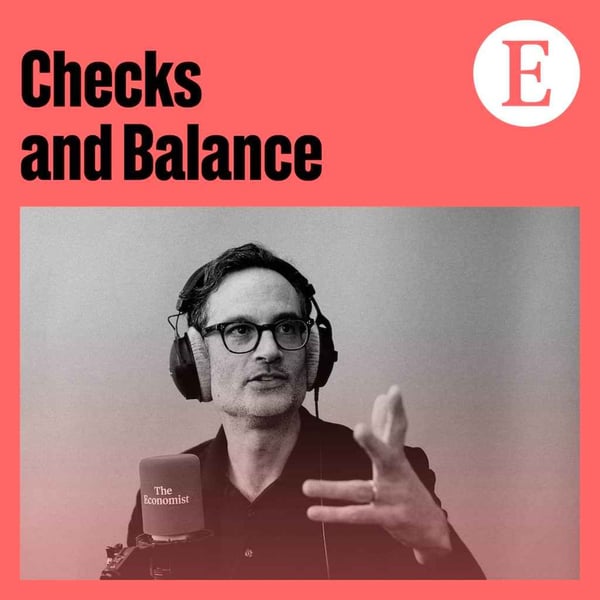Checks and Balance: Seal the deal
Checks and Balance from The Economist
The Economist
4.6 • 1.7K Ratings
🗓️ 2 June 2023
⏱️ 46 minutes
🧾️ Download transcript
Summary
The deal to raise America’s debt ceiling is finally done. The government will now be able to resume borrowing money to pay its bills, and avoid a default. The last-minute agreement will suspend the debt ceiling and flatten some categories of spending for two years, until after the next election. Why does America has this pointless, exhausting ritual? And how can Congress get rid of it?
The Economist’s Simon Rabinovitch assesses the impact of the agreement. We go back to a previous wrangling over the debt ceiling. And The Economist’s James Bennet surmises the political implications of the deal.
John Prideaux hosts with Charlotte Howard and Idrees Kahloon.
You can now find every episode of Checks and Balance in one place and sign up to our weekly newsletter. For a 30-day digital subscription go to economist.com/podcastoffer
Hosted on Acast. See acast.com/privacy for more information.
Transcript
Click on a timestamp to play from that location
| 0:00.0 | Hello, it's Fern Cotton here, just wanting to pop in to tell you about the sponsor of my podcast Happy Place. |
| 0:07.0 | It's the new Alfa Romeo Tanale plug-in hybrid. |
| 0:11.0 | I got to drive this car recently, me and the family. |
| 0:14.0 | I was standing out on the roads for all the right reasons. |
| 0:17.0 | It's a gorgeous sleek SUV. It's divine. |
| 0:22.0 | It's a plug-in hybrid, so you get all the benefits of an electric car for shorter journeys. |
| 0:26.0 | And then if you're off on a longer adventure, the turbo petrol engine automatically takes over. |
| 0:32.0 | It's all very clever. |
| 0:33.0 | To discover more about Tanale, visit AlfaRameo.co.uk or visit your local AlfaRameo retailer for a test drive to experience it for yourself. |
| 0:46.0 | The origins of Washington's debt ceiling drama lie on the muddy battlefields of the western front. |
| 0:53.0 | When America entered World War I in 1917, it became clear that the way it normally funded costly endeavors wouldn't work. |
| 1:01.0 | At that time, whenever the government needed an injection of cash, it would ask Congress to issue bonds or raise taxes related to specific projects. |
| 1:10.0 | It had done this to fund the building of the Panama Canal, for example. |
| 1:14.0 | But for a global conflict of uncertain length and cost, something more flexible was needed. |
| 1:21.0 | The second Liberty Lone Act of 1917 allowed the government to borrow up to $11.5 billion. |
| 1:28.0 | What it spent that on was at its discretion. |
| 1:32.0 | It was the first time Congress had issued a limit on federal borrowing, though the aim was actually to make it easier for the government to spend money. |
| 1:41.0 | That's not how Washington works now. Politicians have been waging their battle to raise the debt ceiling, which comes around roughly every other year. |
| 1:49.0 | They have a deal, which is better than not having a deal. But this is an exhausting, pointless ritual. |
| 1:56.0 | I'm John Prado and this is Chex and Balance from the Economist. |
| 2:03.0 | Each week we take one big theme shaping American politics and explore it in depth. |
| 2:09.0 | Today, why does America have this daft system? And what difference does it make? |
... |
Please login to see the full transcript.
Disclaimer: The podcast and artwork embedded on this page are from The Economist, and are the property of its owner and not affiliated with or endorsed by Tapesearch.
Generated transcripts are the property of The Economist and are distributed freely under the Fair Use doctrine. Transcripts generated by Tapesearch are not guaranteed to be accurate.
Copyright © Tapesearch 2025.

